Audio
Student work • Philadelphia 2017
 Many Asian families are mired by shame, language barriers and limited community resources, say advocates and families of children with autism.
Many Asian families are mired by shame, language barriers and limited community resources, say advocates and families of children with autism.
Published July 27, 2017

When Kevin Chang was first diagnosed with autism nearly 15 years ago in California, his grandmother thought it was her fault.
“She was blaming herself because (she thought) the reason why he’s speech delayed is that because she barely spoke English,” his father, Wonkoo Chang, said.
Like Kevin’s grandmother, many Asian families are mired by shame, language barriers and limited community resources, say advocates and families of children with autism. As a result, they’re less likely to get their children diagnosed or find and receive long term treatment.
“If you have a child with autism, then your family is culturally shamed because your family is not a good gene pool, or the parents did something wrong,” said Dr. Young Shin Kim, an autism researcher at Yale University. “There’s a lot of stigma.”
And local institutions and support networks that exist to help these individuals can sometimes let these vulnerable families slip through the cracks, as they struggle to provide the language and educational resources.
“Looking at the policies and the services conceived, they’re designed by abled people,” said Anna Perng, a Taiwanese-American mother in Philadelphia whose 4-year-old and 6-year old sons both have autism. “And when you add race and class, you’re starting to look at, ‘Who does this work for?’”

Graphic: Alexandra Yoon-Hendricks
Autism, or the autism spectrum disorder, refers to a range of conditions affecting social skills, behaviors, speech and nonverbal communication.
More than 3.5 million Americans are estimated to be living with the disorder, with Asians and Pacific Islanders representing a small but significant share of them.
Autism is identified more frequently in white children than in other racial groups — a trend that can sometimes create the perception of autism being a disease associated with only white individuals. And neither the Centers for Disease Control and Prevention nor the National Institutes of Health maintain comprehensive ethnic breakdowns of individuals living with autism in the United States.
Asians comprised about 5 percent of the roughly 347,000 children studied in a 2016 CDC report. That amounts to about one in 88 Asian and Pacific Islander children in the United States identified with autism spectrum disorder, which is comparable to the prevalence rates of Black and Hispanic children.
Efforts have been made to investigate delays in diagnoses and services for ethnic groups such as Blacks and Hispanics. But the challenges of Asian families continue to go underreported, in large part because families do not or cannot volunteer for research studies that require open disclosure or include complicated jargon, said Philadelphia-based clinical social worker Karen Krivit.

Graphic: Alexandra Yoon-Hendricks
In Asian communities, families sometimes hide the fact that a family member has a disability, whether it is developmental conditions like autism or other mental disorders, said Peter Wong, research director at the Asians and Pacific Islanders with Disabilities of California.
Revealing a mental disorder could jeopardize not only the child’s future, but also the family’s reputation, he said. Myths run rampant in the community, Krivit said. She added that some families may believe that a child with autism serves as an indicator that the family is being punished for a past wrong.
While conducting a study of autism prevalence in South Korea, Kim received an angry call from a participant’s mother, who complained that her son’s diagnosis caused her daughter’s boyfriend to break up with her.
“Her son was diagnosed with autism,” the Yale researcher said, “but her daughter’s boyfriend said, ‘I cannot date you or marry you because you’re genetically flawed.’”
Chang and his wife, Johnna Cho, still encounter similar cultural hurdles in the Los Angeles-area. Chang freely shares the family’s experience, but he said family members urge him to remain silent.
“Why are you telling people that he has autism?” Chang recalled them saying. “There’s nothing to be proud about that.”
To which Chang replied: “It has nothing to do about pride or being ashamed.”
Initially, Chang and Cho sought out their family doctor to understand why Kevin threw tantrums, but their pediatrician reassured them that nothing was wrong with their son.
“Our pediatrician said, ‘I wouldn’t worry about it’,” Cho said.
Cho took her pediatrician’s word for it, she explained. But as Kevin’s tantrums continued, she and Chang reached out for an official diagnosis nearly a year later.
Late or incorrect diagnoses can make it harder for parents and therapists to help children learn behavioral or communication skills.
In Philadelphia, the largest group of children getting late diagnoses are Asian immigrants, according to Krivit, who helps oversee the city’s system of about 8,000 special needs children.
“These are kids who could’ve been getting services at age two getting first diagnosed at age five or six,” Krivit said.
Dr. Naveen Mehrota, founder of New Jersey-based non-profit Shri Krishna Nidhi, remembers when he advised a family with an infant to seek further diagnosis for the child’s mental development. Instead, the family transferred out of Dr. Mehrota’s clinic and sought further advice from another pediatrician, who said the child’s development was fine.
Two years later, the parents discovered a large tumor in the child’s brain that was affecting the child’s development.
“The moral of the story is that we tell the parents something they don’t want to hear…especially people in our community,” Mehrota said “They want that perfect child who goes to Harvard.”
Audio
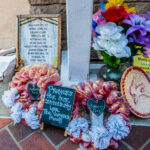



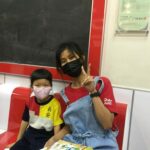
Philadelphia 2017

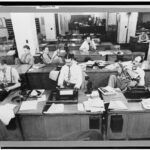
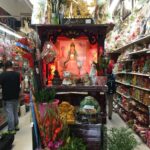

Apply
Become a fellow or editor
Donate
Support our impact
Partner
Work with us as a brand
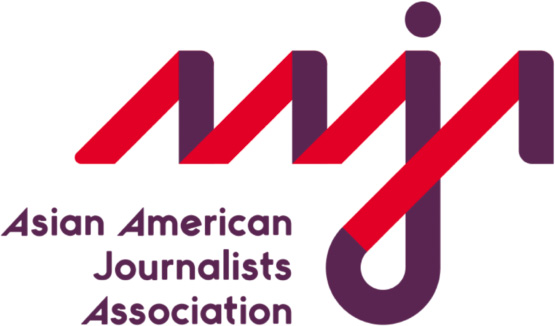
The Asian American Journalists Association (AAJA) is a membership nonprofit advancing diversity in newsrooms and ensuring fair and accurate coverage of communities of color. AAJA has more than 1,500 members across the United States and Asia.